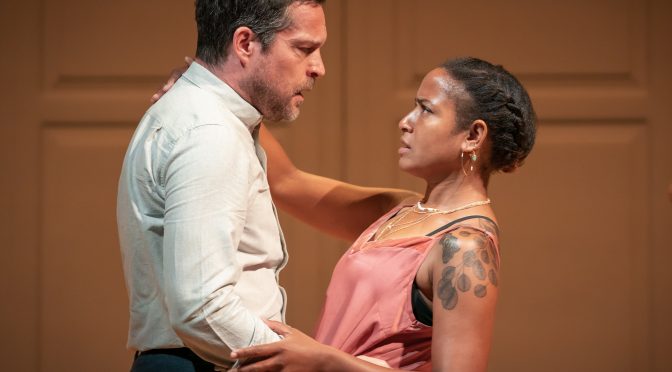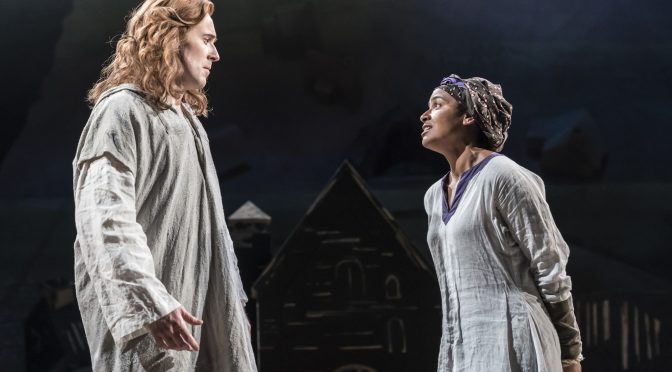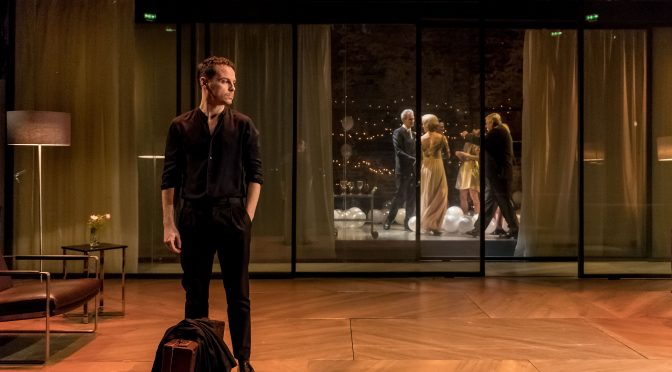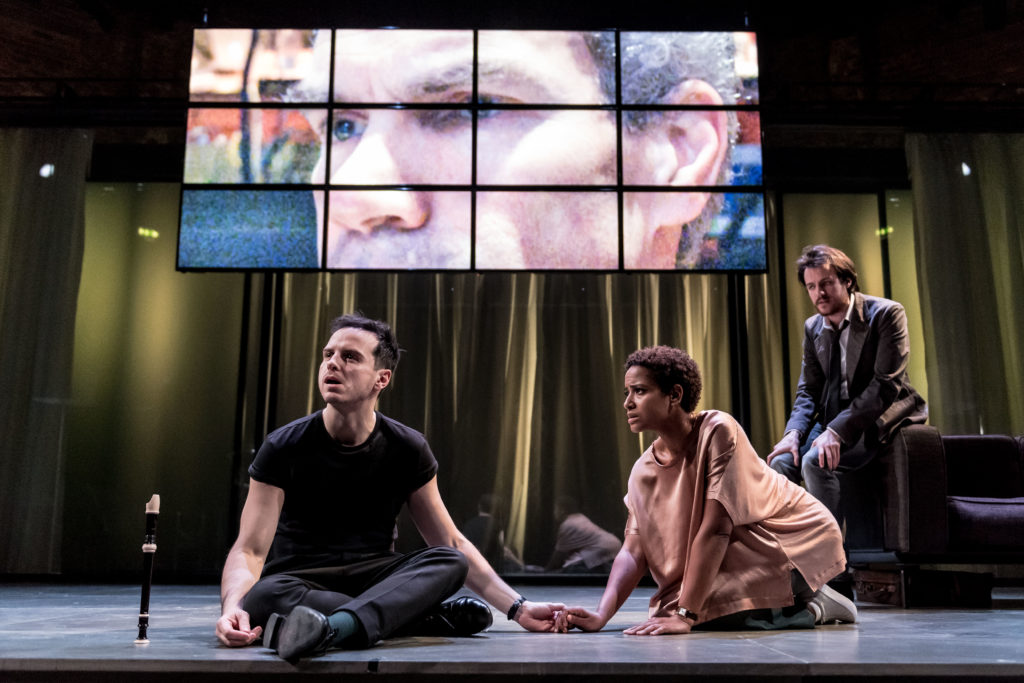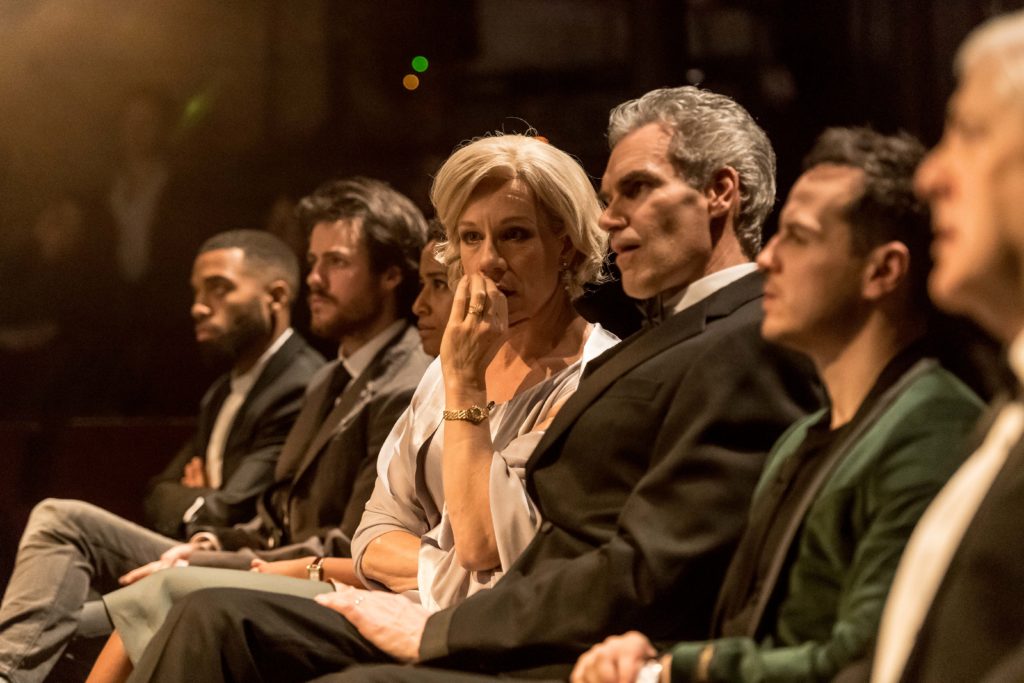Playwright Florian Zeller has had phenomenal success bringing his brand of smart French panache to the British stage. But this new work, another hit and this time a transfer from the Kiln Theatre, is different. With plays like The Father, Zeller experimented with perceptions of reality, while his comedy about adultery, The Truth, used twisting perspectives and audience expectations to get grown-up laughs. For The Son, Zeller abandons any tricksy touches: he presents a stripped back, almost simple, play that is a harrowing story of mental health.
The acting is irreproachable. Taking the title role, Laurie Kynaston gives a career defining portrayal as troubled teen Nicholas. Like the text, and Michael Longhurst’s direction, Kynaston shows great control. There are outbursts of anger but bad behaviour is in the background. Nicholas’ problem is an inexplicable unhappiness he simply can’t articulate and that makes it all the more frustrating and moving.
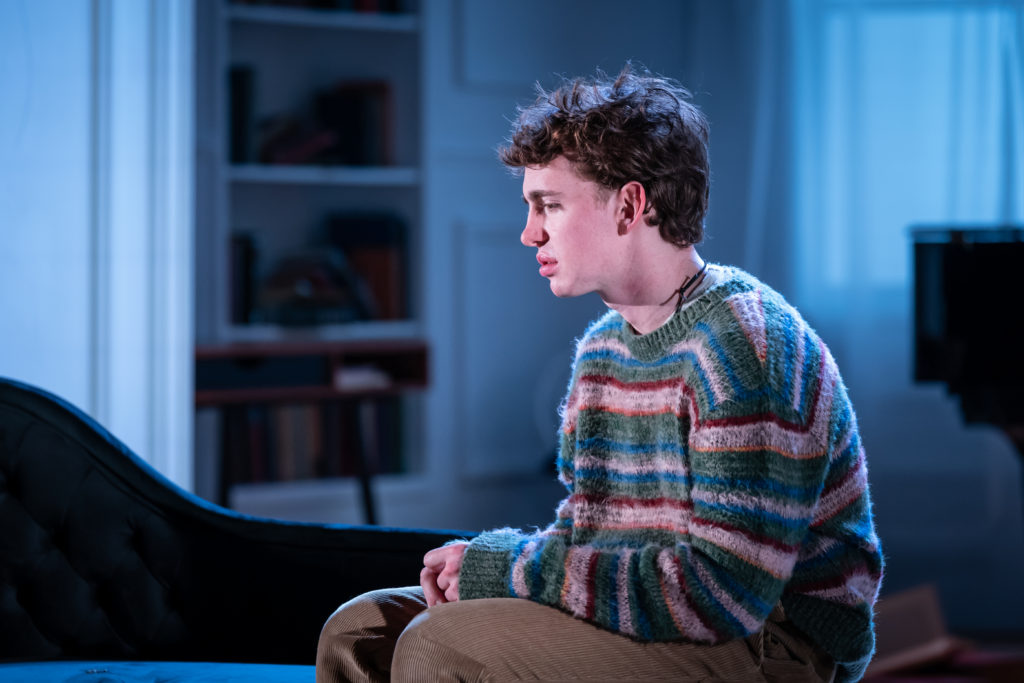
The adults dealing with his illness suffer too. If Zeller hadn’t already used the title previously, this piece could easily be named after Nicholas’ father, a major role that John Light excels with. As with the mother, played by Amanda Abbington, there’s a sense of panic and fear that adds tension to the play. Both parental roles, complicated by their recent divorce, are depicted with care and attention.
Arguably the pivotal character, who has, like the audience, a little more distance from Nicholas, is his step-mother Sofia. It’s a fantastic part for Amaka Okafor who shows a woman trying to warm to the youngster, who unexpectedly ends up living with her, but who is also scared of him. The awful moment when Nicholas overhears what she thinks of him is balanced by her steely resolve not to let him babysit his new born step-brother.
Sofia shows how Zeller has mined the psychological complexity in his scenario. The characters’ reactions aid an uncanny ability to make the most mundane questions fraught. Longhurst’s direction compliments the technique and the tension is frequently uncomfortable. If ever a play needed a trigger warning this is it, and I suppose a plot spoiling alert is needed too…
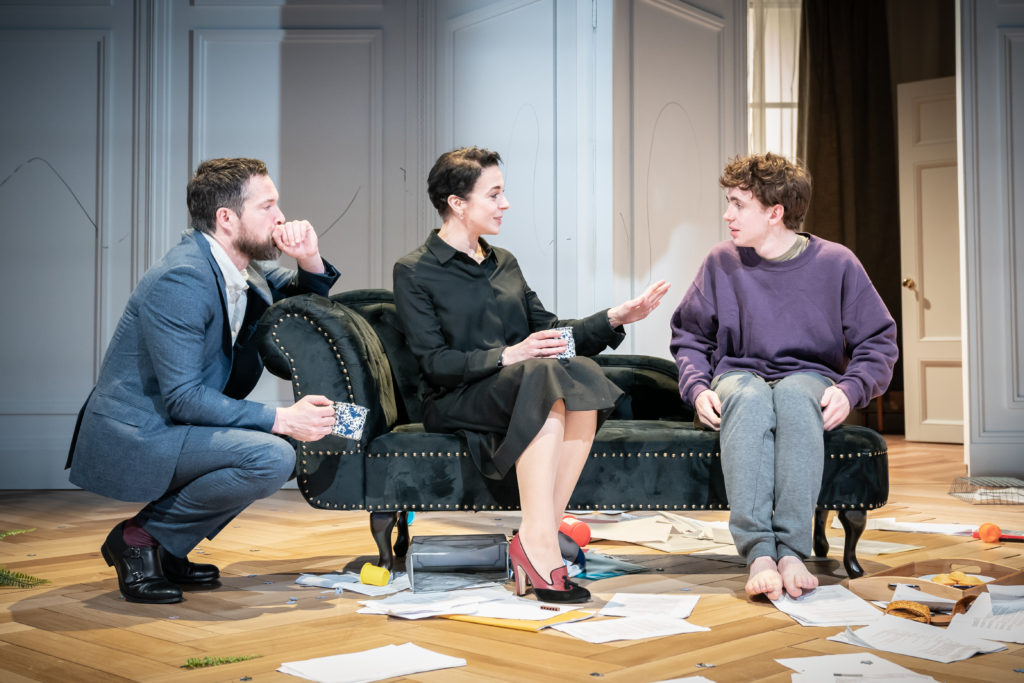
This is a tale of teenage suicide and in the play the outcome comes as no surprise. Given that Zeller can cover the tracks in a plot better than most this must be deliberate. That the play is so predictable adds a sense of doom from very early on. But while it seems a trivial point in this context, that doesn’t help the play dramatically. The outcome is particularly grim and some key decisions made by the adults in Nicholas’ life are, let us hope, unrealistic. Nicholas only becomes increasingly inexplicable – a fair point but one that is truly dismal. Of course Zeller doesn’t have to sugar any pill, but he also raises hope to dash it in a final scene which comes across as cruel. There’s no doubting the power of Zeller’s writing here – all the five star reviews have recognised it – but in abandoning his usual brilliance for the sake of a brutal power, a warning about the play does need to be issued.
Until 2 November 2019
Photos by Marc Brenner

